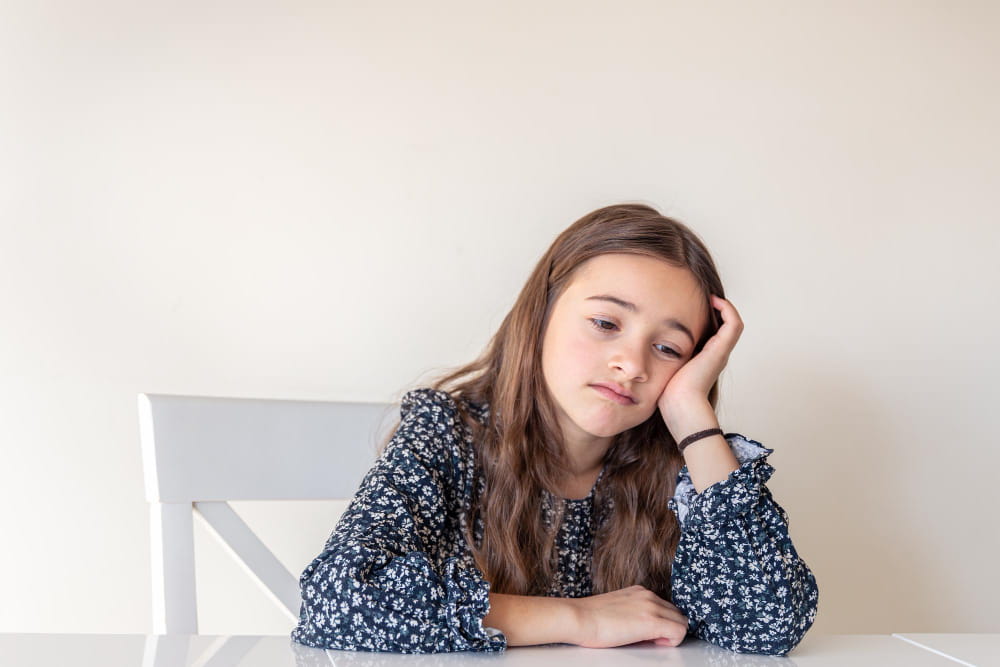Having ADHD can sometimes make relationships feel a bit tricky. It’s not always easy when you’re dealing with things like forgetfulness or trouble focusing. But, with a little effort and some smart approaches, you can build really strong connections. This article is all about figuring out how ADHD affects your relationships and what you can do to make them better. We’ll talk about common issues and share some simple tips that can make a big difference.
Key Takeaways
- Understanding how ADHD symptoms like impulsivity or difficulty with organization can impact interactions is the first step in improving adhd and relationships.
- Open and honest communication is super important. Learning to talk about your needs and listen to your partner’s is key for any relationship, especially when ADHD is involved.
- Showing empathy and trying to see things from your partner’s point of view helps build trust and makes your bond stronger.
Understanding the Impact of ADHD on Relationships

ADHD, or Attention-Deficit/Hyperactivity Disorder, can really shake things up in relationships. It’s not just about being a bit forgetful or easily distracted; these traits can create real friction between partners. For folks in Texas, Washington, California, Iowa, and New York, recognizing these patterns is the first step toward building stronger connections. At Polished Mind Psychiatry, we see firsthand how ADHD affects partnerships, and it’s important to talk about it openly.
Recognizing Common ADHD Challenges in Partnerships
When ADHD is part of a relationship dynamic, certain challenges tend to pop up. These aren’t intentional, but they can still cause hurt feelings and misunderstandings. Think about things like forgetfulness – missing appointments, forgetting important dates, or not following through on promises. This can make a partner feel unimportant or like they can’t rely on you. Then there’s impulsivity. This might show up as sudden big purchases without discussion, interrupting conversations frequently, or making rash decisions that affect both people. It can feel like a lack of consideration, even when that’s not the intention.
Another big one is emotional regulation. People with ADHD can sometimes experience emotions more intensely, leading to quick frustration, anger, or sadness that might seem out of proportion to others. This can make disagreements feel more heated and harder to resolve. Difficulty with organization and time management also plays a role. Bills might be late, household chores might pile up, or plans might constantly need adjusting. It’s a lot for both individuals in the relationship to manage.
- Forgetfulness: Missing dates, appointments, or tasks.
- Impulsivity: Acting without thinking, leading to financial or social issues.
- Emotional Dysregulation: Intense emotional reactions and difficulty managing moods.
- Time Blindness: Underestimating how long tasks will take or being late.
- Distractibility: Difficulty focusing on conversations or shared activities.
It’s easy for partners of someone with ADHD to feel overlooked or burdened. The key is to remember that these behaviors stem from neurological differences, not a lack of care or commitment.
Adults with ADHD often face challenges in relationships, leading to increased dissatisfaction, miscommunication, and a higher likelihood of relationship breakdowns, according to research. Understanding these common issues is the first step toward finding solutions that work for both partners. If you’re in TX, WA, NM CA, IA, or NY and want to explore these challenges further, consider reaching out for support.
The Role of Communication in ADHD Relationships
Communication is the bedrock of any healthy relationship, but for couples where one or both partners have ADHD, it requires extra attention and specific strategies. When ADHD symptoms interfere with listening, remembering details, or staying focused during conversations, it can create a cycle of miscommunication and frustration. Clear, direct, and patient communication is absolutely vital.
Here’s why communication can be tricky and what helps:
- Active Listening: It’s hard to listen when your brain is buzzing with other thoughts. Practicing active listening, like summarizing what your partner said, can make a big difference.
- Reducing Distractions: Try to talk when you’re both in a quiet space with minimal interruptions. Put phones away and turn off the TV.
- Being Specific: Instead of saying, “Can you help more around the house?” try “Could you please take out the trash and load the dishwasher after dinner tonight?”
- Checking In: Regularly ask your partner how they’re feeling about the relationship and if there’s anything they need from you.
- Written Communication: Sometimes, sending a text or email with important information can be more effective than relying on verbal recall.
Misunderstandings can escalate quickly if not addressed. It’s important to create a safe space where both partners feel heard and understood, even when conversations are difficult.
Building better communication habits can significantly improve the quality of your relationship. If you’re struggling with communication patterns related to ADHD, professional guidance can be incredibly helpful. We encourage you to book an appointment with us to discuss strategies tailored to your situation.
Strategies for Nurturing Stronger Connections

When ADHD is part of a relationship dynamic, building and keeping strong connections takes conscious effort. It’s not about blame; it’s about finding practical ways to work together. For folks in Texas, Washington, California, Iowa, and New York, understanding these strategies can make a real difference. Remember, you’re not alone in this, and seeking support is a sign of strength. We’re here to help you build those stronger connections.
Developing Effective Communication Techniques
Communication can feel like a minefield sometimes, especially with ADHD. Misunderstandings can pop up easily, whether it’s about forgotten chores, missed appointments, or feeling unheard. The good news is, there are ways to make talking and listening work better for both of you. It’s about setting up clear systems and being patient.
- Schedule Check-ins: Set aside regular, short times to talk about your day, your feelings, or any issues. Make it a routine, like brushing your teeth. This gives you both a dedicated space to connect without distractions.
- Use Visual Aids: Sometimes, spoken words just don’t stick. Try writing things down, using a shared calendar, or even sending a quick text reminder. This can help with memory and attention issues.
- Practice Active Listening: This means really focusing on what your partner is saying, not just waiting for your turn to speak. Try to summarize what you heard to make sure you got it right. This is a skill that gets better with practice.
Sometimes, the simplest approach is the most effective. Instead of expecting your partner to remember every detail, create a shared system for important information. This takes the pressure off individual memory and builds a team approach.
Learning to communicate effectively is a journey. It requires patience and a willingness to try new things. If you’re finding it tough, remember that professional guidance can be incredibly helpful. You can book an appointment with us to discuss strategies tailored to your situation.
Building Trust and Understanding Through Empathy
Trust and understanding are the bedrock of any good relationship, and they’re especially important when ADHD is involved. When one partner has ADHD, the other might sometimes feel overlooked or frustrated by things like forgetfulness or impulsivity. Empathy helps bridge these gaps.
- Acknowledge the ADHD Brain: Recognize that ADHD affects executive functions like organization, time management, and emotional regulation. It’s not a choice or a lack of caring. Try to see behaviors through this lens.
- Validate Feelings: Even if you don’t understand why something happened, acknowledge your partner’s feelings. Phrases like, “I can see why you’re upset about that,” can go a long way.
- Focus on Strengths: ADHD often comes with creativity, energy, and hyperfocus on interests. Make an effort to notice and appreciate these positive traits in your partner and in yourself.
Building trust means being reliable and following through, but it also means being forgiving when mistakes happen. It’s about creating a safe space where both partners feel seen and accepted, ADHD or not. This kind of connection is built over time, with consistent effort and a lot of heart. Remember, you’re building a partnership, and that’s a team effort.
Want to build stronger relationships? Learning how to connect better with others is key. These tips can help you create deeper bonds. Ready to improve your connections? Visit our website to learn more and start building those meaningful relationships today!
Building Stronger Bonds
Working through ADHD in a relationship takes effort from everyone involved. It’s about learning how ADHD affects your partner and your interactions. By using strategies like clear communication, setting realistic expectations, and celebrating small wins, you can build a more connected and supportive relationship. Remember, seeking professional guidance can also make a big difference. If you’re looking for ways to improve your relationship dynamics, consider reaching out for support. You can book an appointment with us at Polished Mind Psychiatry to explore personalized strategies.
Frequently Asked Questions
How can ADHD affect my relationship?
ADHD can make it tricky to stay organized, manage time, and control impulses, which might affect how you and your partner communicate and handle daily tasks. Sometimes, it can lead to misunderstandings or feeling overwhelmed.
What are some good ways to talk to my partner if I have ADHD?
Open and honest talks are super important! Try to explain your feelings clearly and listen carefully to your partner. Using ‘I feel’ statements can help avoid blame. Regular check-ins, even short ones, can make a big difference in keeping you both on the same page.
How can I build trust and understanding with my partner?
Understanding means trying to see things from your partner’s point of view. When your partner shows they get what you’re going through with ADHD, it builds trust and makes you feel more connected. Showing you care and are willing to work together helps strengthen your bond.




